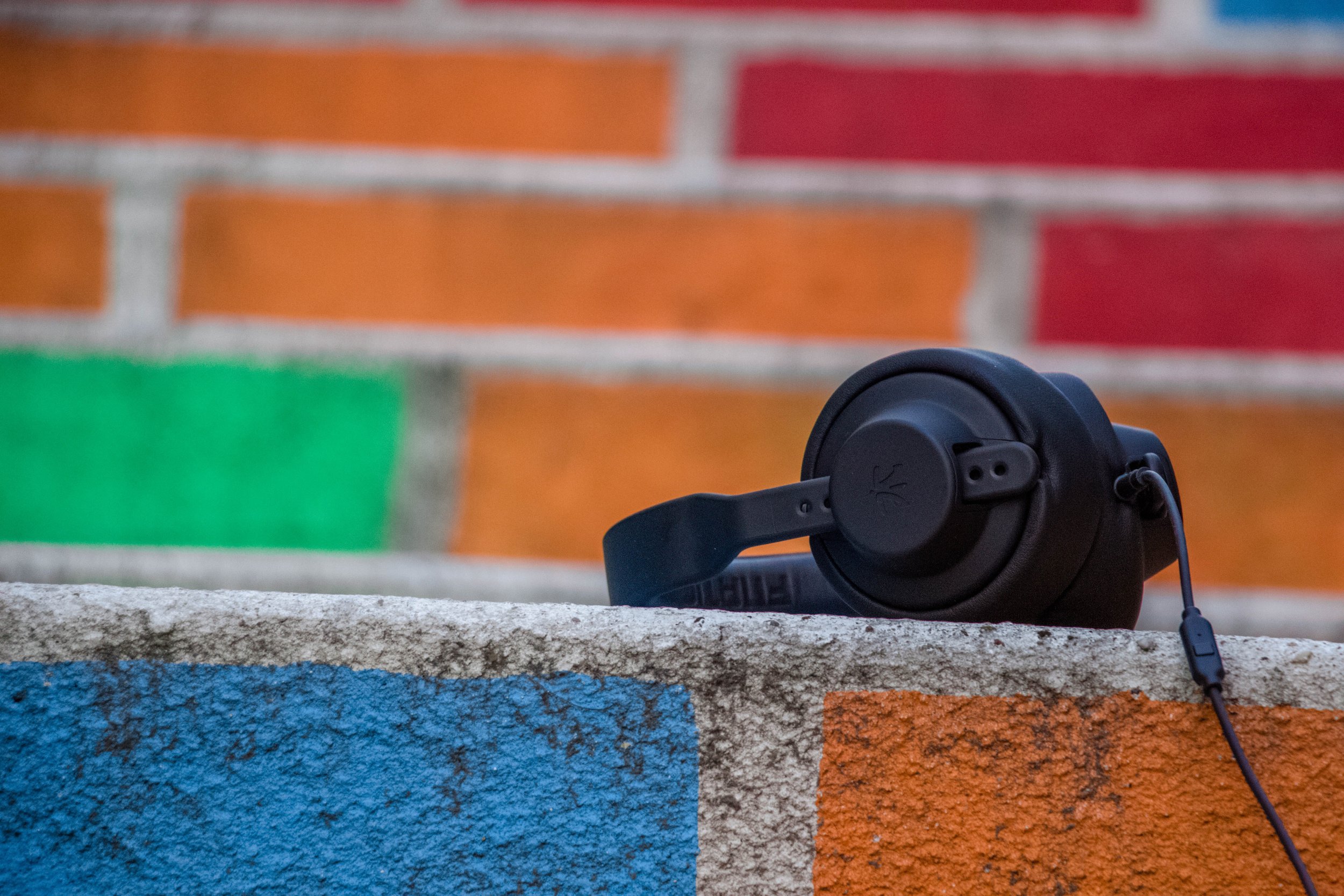Episodes
Season 1, Episode 15: Climate Music Pt. 2: Thomas's Playlist
Part 2 of our exploration of climate emotions through music: Thomas’s playlist “Shifting Basslines of the Cornucopians” — its title inspired by the Snapped Ankles number, and having a double meaning: Shifting bass lines in the music that inspires us and “Shifting Baselines” in how each generation perceives the natural world. As Thomas notes: “My themes are water and fire, being a hostage to Capitalism and Climate Change, finding refuge, transformation, and our all-togetherness during these challenging times. As Courtney John sings “Yes we are sailing in a different boat. But we are sailing in the same ocean.” In my mix, I am inspired by a variety of sources, the old time music of the Carter Family, the cathartic punk of The Thermals, the immersive ‘Become…’ series of Alaskan composer John Luther Adams, and the tribal techno of ‘Land Back.’ We are nostalgic (and solastalgic) about the beautiful ‘Flatlands’ in ‘The World We Knew’ while the ‘Sword of Damocles’ hangs over our heads. In this ‘Cruel Summer’ with ‘No Snow on the Mountain’ we hope that ‘Somewhere’ there is a place for us.”
Season 1, Episode 14: Climate Music Pt. 1: Panu’s Playlist
It has been said: “Where words leave off, music begins.” The climate emergency challenges us to find words for so many feelings: Loneliness and connection, pain and loss, endurance, dedication, creativity and joy. In this two-episode series, Panu and Thomas share personal music playlists based on a simple assignment: “Music and climate emotions.” Thomas and Panu discuss the important role music plays in their coping and wellbeing, and examples of climate change-focused musical endeavors. Panu begins with a selection of 15 tracks from a variety of artists. He notes “this playlist is an emotional journey. The atmospheres … are more important than the lyrics, but some tracks have also been selected because of their lyrics. The playlist does follow roughly a process of crisis. There are fluctuations of sorrow and anger, but also of hope and beauty—as in our lives amidst the ecological crisis.” Music is a universal emotional language. Listen along and let us know about the music that inspires you to express your climate feelings.
Season 1, Episode 13: COVID Feelings – Looking Back at 2021
In this new episode, Thomas and Panu look back to a discussion they had in October 2021 about coping with the COVID-19 pandemic and how this compares with coping with climate change. As you listen, reflect on your own experiences of COVID-19 pandemic in the midst of the larger climate crisis. Back in 2021, it was clear these overlapping problems had pushed us to extend our capacity to be with our feelings amidst extreme hardship and challenge — now Panu and Thomas have been touched by COVID personally. In hindsight, Panu’s COVID and climate research and Thomas’s coping strategies ring true. Their wide-ranging 2021 dialog touched on wise use of media and avoiding “cyberchondria,” calibrating our anxiety alarm systems, restoring ourselves in the face of “macro worries,” and the importance of gratitude and embodying “love in action.” A key take away, then as now: Some suppression of emotions is quite useful and healthy in the midst of a crisis. The challenge is to be conscious of this process, and to come back to our emotional expression when we have the opportunity —for this is where we learn and grow.
Season 1, Episode 12: Eco-Anxiety in Finland and the Shouting Man
In this episode, Panu and Thomas are joined by Finnish therapists Sanni Saarimäki and Taneli Saari to discuss the Finnish “scene” around eco-anxiety and climate emotions. After discussing their own paths towards working with climate emotions, Sanni and Taneli introduce both the Finnish National Project and Tunne ry (an organization focusing on eco-emotions), whose work is apparently the first such project funded at a national level in the world. Together the four discuss the Shouting Man project as a unique and cathartic way to express climate emotions and also explore the role of therapy methods such as Acceptance and Commitment Therapy in a climate and environmental context.
Season 1, Episode 11: Bearing Witness to the Acts of Wynn Bruce and David Buckel
Reflecting on the recent self-immolation of climate activist Wynn Bruce as a protest and call to action in the face of climate change, Thomas and Panu discuss the importance of bearing witness to emotionally difficult events. In the teaching of systems thinker, Joanna Macy, they acknowledge both the difficulty and value of staying open to the world even when it is painful and seemingly impossible. Inspired by the writings of Daniel Sherrell in his book Warmth, they reflect on the importance of not reducing all of our climate feelings “into their utility for the movement,” but rather allowing some to exist solely unto themselves.
Season 1, Episode 10: In Praise of Cynicism
Dark times for dark emotions. In this episode recorded near the end of 2021, Thomas and Panu open the door to the feeling of cynicism and its “friends” apathy, shame, melancholia, “learned helplessness” disillusionment, and misanthropy [dislike of humankind]. They discuss how to be compassionate to ourselves and accept these feelings as inevitable reactions during our current political and environmental crises. They explore cynicism as a way of being realistic about the world, as a protective feeling or style, and from a philosophical perspective as living well in difficult situations, eschewing the trappings of the world and seeking one’s own path of virtue. Thomas discusses how his misanthropy tends to be directed at unjust human systems rather than human nature. Panu highlights a number of thinkers and artists that offer ways to understand and work through our doubt and despair. Is it possible to discover a “post-cynical” position in our deep adaptation to climate change? What is the role of self-sacrifice as an option?
Season 1, Episode 9: Finding Meaning in “Generation Dread” with Guest Britt Wray
This episode is part two of Climate Change and Happiness’s series focusing on childbearing decisions in a time of climate disruption. Science journalist and Gen Dread creator Britt Wray joins Thomas and Panu. Britt describes her “long and winding road” through climate emotions, inspired by her own journey toward having a child. She and Panu reminisce about their earlier conversations about grief and survivorship when Britt was beginning her research. Britt notes her personal shift from “asking is it okay to have a child, to what's required to have a child today? How do we support children in this world?” Thomas noted how Britt’s public exploration of her parenting decisions through her Gen Dread newsletter has filled a void for prospective parents as therapists and mental health continue to become schooled in addressing climate concerns.
Season 1, Episode 8: Climate Change, Children and a Better World with Guest Dr. Jade Sasser
Climate Change and Happiness Episode 8 begins a two-part series focusing on childbearing decisions in this time of increasing climate disruption. Panu and Thomas are joined by feminist scholar Jade Sasser whose research investigates the impacts of climate change, racial injustice, and other existential threats on human reproductive decisions. Together they explore how climate change is interpreted by potential parents and grandparents of different generations and cultures. They discover how, in Jade’s words, children “symbolize and represent so many hopes, dreams, fears, anxieties, desires to make the world better.”
Season 1, Episode 7: Inadequacy & the Upside Down Pyramid
When we face a challenge like global climate change, none of us is “enough.” Thomas and Panu center this episode’s conversation around naming feelings of inadequacy [in Finnish riittämättömyyden tunne: the feeling of not being enough or doing enough]. They share ways to work through this common feeling, balancing acceptance, action and rest. Panu differentiates various shades of anxiety in relation to feeling inadequate in the face of the climate crisis, including anxiety of responsibility, anxiety of freedom and anxiety of guilt. When we work toward sustainability, it’s not just an ideal or a policy. We also have to make it personal with concrete actions.
Season 1, Episode 6: Environmental Identity and “Climate Flow” with Guest Susan Clayton
In a conversation recorded during the recent COP 26 meeting, Susan Clayton, a colleague and noted social and conservation psychology researcher, joined Thomas and Panu. Together they discussed the important role that our environmental identity plays in helping us understand our values and desires about nature and addressing environmental issues.
Season 1, Episode 5: Synergy = Energy
In this episode, Thomas and Panu talk about connections and meaning-making—looking at climate feelings through the lens of synergy. They are constantly surprised at the positive energy they discover as they meet and collaborate with others around the world—such as during Panu’s work on the recent Lancet global youth study—and the validation they gain from learning about those who made similar discoveries in the past. In order to navigate this time in history with its dark ecology of overlapping crises, from climate to COVID to armed conflict, we need to open toward shared energy, efforts, and resources that sustain us.
Season 1, Episode 4: Acceptance, Commitment and Climate with Guest Karine St. Jean
Thomas and Panu welcome Quebecois psychologist Karine St. Jean as their first guest on the podcast. Karine practices mindfulness and uses Acceptance Commitment Therapy (ACT) in her climate-focused work with clients in Montreal, Canada. In a wide ranging discussion, the three discuss the value of sitting with challenging feelings and maintaining flexibility in terms of sustainability action. Karine emphasizes the value in “meaningful faith” and finding “collective meaning” in honoring the positive and negative emotions that come up around issues of the environment.
Season 1, Episode 3: Eco-Anxiety Demystified
How do we navigate eco-anxiety as an idea and as a feeling? Is it one thing or many things? Thomas and Panu talk about eco-anxiety or “ympäristöahdistus” in Finnish as a primal emotion, as a feeling we can describe in various languages, as a cultural idea, and as a psychiatric diagnosis. Thomas and Panu give a history of the concept of eco- or environmental anxiety in psychology research and in pop culture.
Season 1, Episode 2:Holding Space
Safe spaces are crucial for the expression of climate feelings. Thomas and Panu talk about the loneliness people feel about climate experiences. What does it take to “hold space” for climate feelings, to “stand one’s ground” and “contain” experiences of sadness, grief or rage; and to practice “climate cosmopolitanism”? Panu looks back to pioneering work by Chellis Glendinning and shares Tim Jensen’s more recent concept of “ecologies of guilt.” Thomas reminds us of the role of values and that “We hurt where we care” echoing the writing of psychologist Steven Hayes, and classic insights about the “pains of an ecological education” going back to Aldo Leopold.
Season 1, Episode 1: Climate Change and Happiness
Welcome to the Climate Change and Happiness podcast. You’ll meet hosts Dr. Thomas Doherty and Panu Pihkala. Panu talks about his books and workshops on climate feelings, drawing on his background in eco-theology. Thomas speaks from the front lines of research into the mental health impacts of climate change, and shares insights about coping from his counseling practice.















